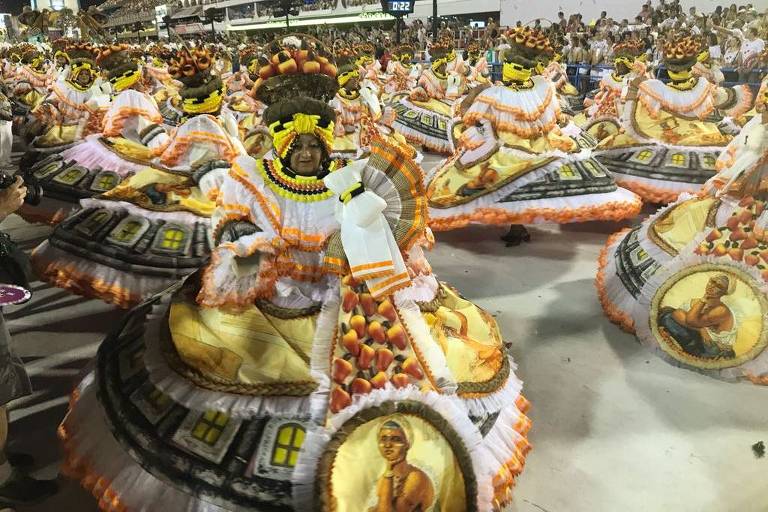The evangelical phenomenon is expanding in Brazil, and reports of a conflictive coexistence with popular culture festivals are becoming more and more common, especially in manifestations linked to African heritage.
For example, the writer and researcher Luiz Antonio Simas attributes to evangelical expansion a change in the profile of the "baianas" section of various samba schools, which have begun to lose members to Pentecostal and neo-Pentecostal denominations.
In Pernambuco's Carnival, the issue is maracatu, which is not just a musical genre or a mere procession. The tradition has religious foundations, with connections to either the worship of the orixás or the caboclos of jurema. It is common for the most traditional groups to be linked to a "casa de santo" (house of worship).
"We end up losing members," says Master Chacon, from the Porto Rico maracatu, about the emergence of evangelical groups performing in Recife.
Religious conflicts have even affected the daily life of a typically Brazilian symbol: the trays of acarajé vendors, as some converted vendors refuse to wear the typical attire.
On the other hand, researcher Simas notes that the evangelical advance has generated reactions. An example is the strengthening of samba school plots with Afro-Brazilian themes, something that was strong in the 1990s and early 2000s but had been waning.
